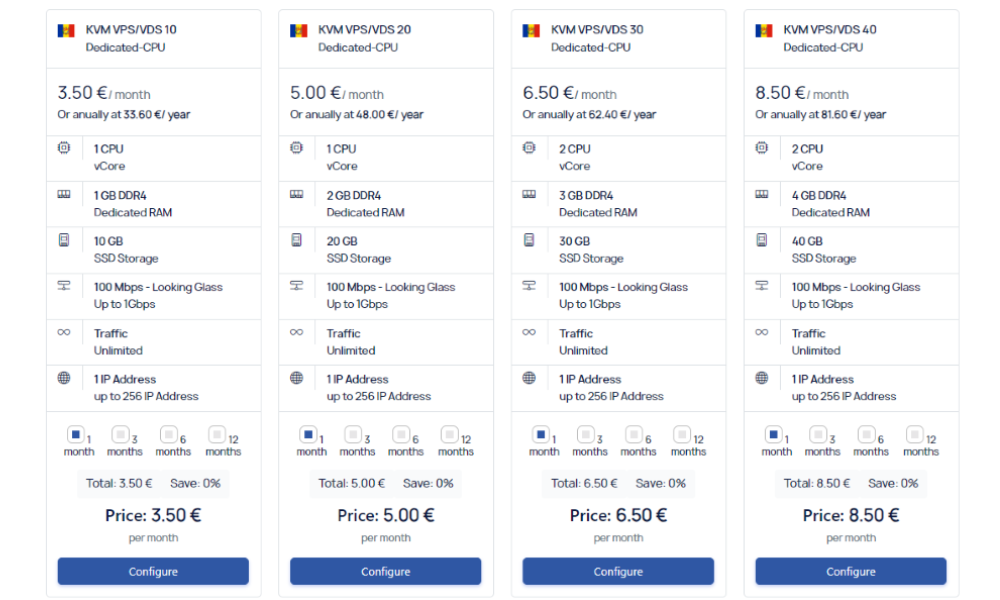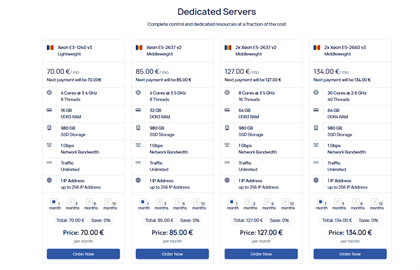
Linux VPS Hosting in 2025 The Complete Guide for Choosing the Best Hosting Solution
May 18, 2025
In the ever-evolving world of cloud computing and virtualization, Linux VPS Hosting continues to be a powerful, flexible, and cost-effective solution for businesses, developers, and entrepreneurs. As we step into 2025, the demand for high-performance, scalable, and secure hosting has grown exponentially. With that, the importance of choosing the right Linux VPS provider has never been greater.
This article explores
how to choose Linux VPS hosting
, what to look for, and why it remains the most popular hosting solution among tech-savvy users in 2025.
What Is Linux VPS Hosting?
Linux VPS (Virtual Private Server) Hosting refers to a hosting environment where a physical server is partitioned into multiple virtual servers, each operating independently with its own resources and Linux-based operating system. Unlike shared hosting, VPS gives users full root access, better performance, and the ability to install custom software.
As Linux is an open-source operating system, it provides a secure, stable, and customizable platform for managing websites, applications, databases, and more.
Why Linux VPS Hosting is Still Dominating in 2025
Linux VPS has consistently remained a top choice because of its unmatched performance, affordability, and developer-friendly features. Here's why it's more relevant than ever in 2025:
Stability & Uptime: Linux is known for its reliability and ability to handle long uptimes without needing reboots.
Security: Regular updates, active community support, and customizable firewalls keep Linux VPS secure.
Flexibility: Users can choose from multiple Linux distributions such as Ubuntu, CentOS, Debian, AlmaLinux, and more.
Performance: Thanks to advancements in hardware and SSD/NVMe storage, modern Linux VPS servers offer incredible speeds and low latency.
Scalability: VPS hosting can be scaled up as business grows, without major migration hassles.
How to Choose Linux VPS Hosting in 2025
Choosing the best VPS hosting provider in 2025 requires evaluating several critical factors. Below are the key considerations to keep in mind:
1. Performance & Resources
Look for providers that offer dedicated resources—CPU, RAM, storage—with guaranteed allocation. SSD and NVMe storage is a must for fast read/write speeds. CPU cores and RAM should be sufficient for your specific workload.
2. Customization Options
The best Linux VPS providers allow users to choose their preferred Linux OS and offer full root access. This is important for developers and sysadmins who want total control over their environment.
3. Security Features
Check for built-in security features such as DDoS protection, firewalls, automated backups, and secure SSH access. Hosting companies should also follow industry standards for data encryption and server hardening.
4. Scalability
As your project grows, your server should grow with it. Choose a provider that makes it easy to upgrade CPU, RAM, or storage without downtime.
5. Uptime Guarantee
A reliable VPS hosting provider will offer at least a 99.9% uptime guarantee, backed by robust infrastructure and 24/7 monitoring.
6. Support
Even experienced users run into issues. Look for providers that offer 24/7 customer support via live chat, tickets, or phone. Expert support can save you hours of troubleshooting.
7. Pricing & Value
Transparent pricing without hidden fees is crucial. Make sure the price aligns with the resources and features provided. Some providers also offer flexible billing (monthly, yearly, or hourly) for different use cases.
Features to Expect from the Best Linux VPS Hosting in 2025
In 2025, top-tier Linux VPS hosting services offer a wide range of advanced features. These include:
High-speed NVMe SSD storage
Multi-core CPUs (Intel or AMD EPYC)
Tier-1 bandwidth and multiple data center locations
Pre-configured templates for WordPress, Docker, cPanel, and more
IPv6 support
Automated snapshots and backup tools
API access and automation capabilities
Modern VPS hosting platforms are designed not just for hosting websites, but also for complex applications, container orchestration, development environments, and high-performance computing.
Who Should Use Linux VPS Hosting in 2025?
Developers: Full root access and the ability to install any package or language environment.
Businesses: For hosting e-commerce stores, CRM systems, or enterprise software.
Startups: Easy to scale as user demand grows.
Agencies: Hosting multiple client websites with isolated environments.
Gamers & Streamers: Hosting game servers or live applications requiring low latency.
Trends in Linux VPS Hosting for 2025
Containerization with Docker & Kubernetes: More developers are using VPS to host containers for microservices-based applications.
Edge Computing: Hosting closer to users for lower latency.
AI & Machine Learning: GPU-enabled VPS servers are in demand for AI/ML workloads.
Sustainability: Eco-friendly data centers using renewable energy are becoming more prominent.
Automation: Control panels and APIs now offer more automation tools for deployment and scaling.
Final Thoughts
As cloud technology advances, Linux VPS hosting in 2025
remains the go-to choice for professionals seeking a blend of performance, control, and affordability. Whether you're running a single website or managing a complex infrastructure, a well-chosen Linux VPS can provide the foundation you need to succeed.
Understanding how to choose Linux VPS hosting is essential in today’s fast-paced digital landscape. By focusing on performance, scalability, security, and support, you can confidently invest in a hosting environment that grows with your vision.
When evaluating hosting providers, prioritize innovation, reliability, and transparency—key qualities that define the best Linux VPS hosting in 2025.















